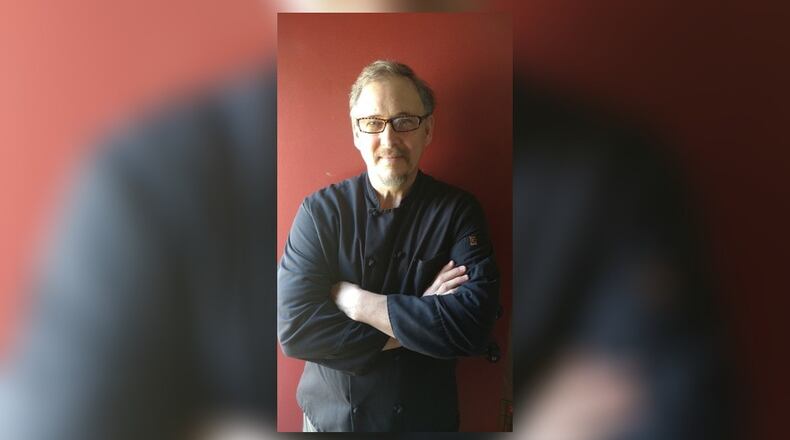Kouse has been growing his consulting business, Chef Therapy Group, with the goal of helping restaurants and bars build their business around these fundamentals.
Sometimes that can mean adopting a new mindset.
MORE: Teaching kitchen to help Dayton docs use food as medicine
“That’s part of why the name therapy is in my business name, it’s changing the way people think about setting up their kitchens,” he said.
Kouse, a Springfield native, has 40 years experience as a chef and in the food business, including early in his career when he owned and operated two local bars before he was 24-years-old.
“Doesn’t mean I made a whole lot of money. I lost money. But the lesson I learned has never gone away,” he said. “It’s the ownership theory. Every time I’ve worked for someone else, I’ve worked like that was my money.”
He’s since worked in a corporate brigade-style kitchen, at a local upscale catering service as a catering chef, as a hotel banquet chef for parties up to 600, and as a chef at a farm-to-table model restaurant, among other job experience.
Now Kouse is using his experience and lessons learned to help others with their restaurants and kitchens. That includes “turn key” restaurant service. He develops a plan for the scope of the work and breaks the project down in phases. The kitchen is designed based on the menu, with extra room so there’s space to evolve. He sources product, costs out how much the menu will be, creates ordering guides, cleaning schedules, preventive maintenance and does whatever else it takes to make sure the restaurant has a successful start. If there’s interest, he said he’ll also set up composting, recycling or other waste reduction options.
Marcy Nesselroade, who is working with her daughter to open Iron Works Waffles & Coffee in Springfield, have been working with Kouse on the planned breakfast-and-lunch spot.
Kouse has been helping with everything from planning the layout, to knowing what equipment to order, to knowing what safety training and health regulations need met.
NEW COFFEE SHOP: Here’s what you’ll find inside the new Reza’s Downtown on Wayne Avenue
Nesselroade said her daughter has experience at a coffee shop, and they both love to cook, but they are new to the business of running a restaurant.
“I guess maybe we could have muddled through it without him, but there’s so many things we would have ended up having to do two and three times,” she said.
Kouse also guided Eudora Brewing Company with launching its kitchen.
Neil Chabut, owner and brewer, said he hired Kouse because he was confident that Kouse could get the kitchen started on the right foot.
“I had very little experience in the food service industry, let alone setting up a kitchen, so we thought it would be best to hire someone who knew what they were doing,” Chabut said. “He helped with everything from equipment sourcing, menu design, and staffing, all the way to training people and making sure we were all on the same page when it came time to open.”
In his four years of consulting — two years full time — he’s also helped with other types of consulting, such as helping a restaurant switch up their menu.
You are what you eat, said Kouse, and it’s important that what you eat is quality and healthy food.
“You cannot insult people’s food intelligence anymore. They turn around and look at labels. The see the sugar content. They know the sodium. They know what some of those long words mean,” Kouse said.
Kouse said another important part of what he does is teach chefs how to be a “Fair Kitchen,” which is a chef-founded set of training and tools to have a kitchen culture that values staff.
Pulling statistics from the Fair Kitchens website, Kouse said 1 in 4 chefs have suffered physical abuse, 74 percent feel sleep deprived to the point of exhaustion and 53 percent of chefs say they are “pushed to the breaking point.”
“Been there. All of the above. For years,” Kouse said.
He said these stressful environments fuel a workplace culture of drinking too much caffeine, alcoholism, or drug abuse while employees try to balance out what they are experiencing or self medicate. Instead, kitchens should be places where people feel mentored and treated with respect.
“A lot of guys with bottom line mentalities don’t realize this would help their bottom line because they wouldn’t have all that turnover and that overtime,” Kouse said.
About the Author
